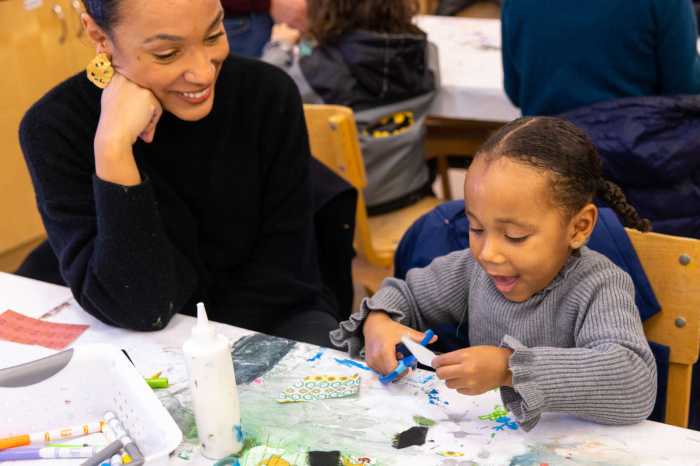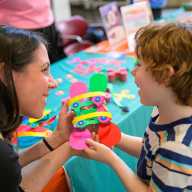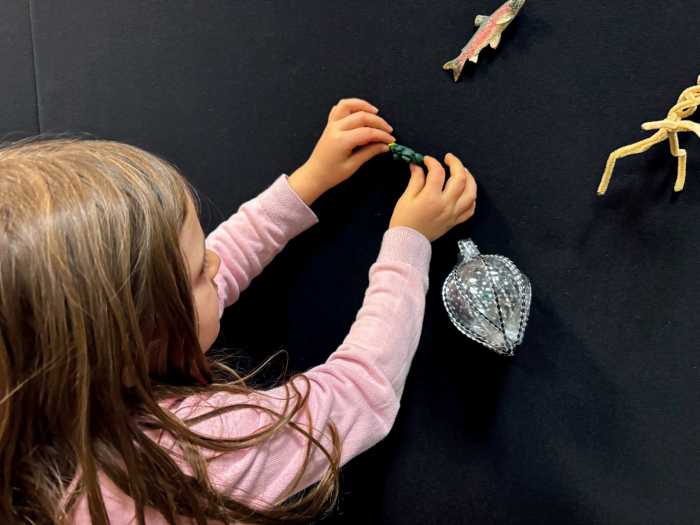Q Should My Child Get a Developmental Assessment?
Every child develops at his own pace, and the spectrum of what is “normal” is broad. But there are times when a child may not be developing as quickly as one would expect and that’s when many parents consider a developmental assessment. A specialist in Neurodevelopmental Disabilities and Developmental Behavioral Pediatrics at Greenwich Developmental Pediatrics, Debra Seltzer, M.D., says many parents self-refer their children for a developmental assessment when they feel there is a problem. While there are developmental milestone checklists online, Seltzer advises parents that it’s important to remember these checklists are meant as guides, and should not be considered written in stone. “There are certain milestones that we expect,” says Seltzer, “and kids will fluctuate within those.”
The Milestones
These milestones range from physical development (a child will generally be rolling over between 3 and 6 months of age), emotional development (a child will generally show displeasure at the loss of a toy between 6 and 9 months), cognitive skills (most babies at 9 months old understand that an object still exists when it is taken away), and communication skills (most 2-year-olds can name an object based on the object’s description).
However, the family shouldn’t be operating in a vacuum. “Most pediatricians are doing developmental surveillance at various recommended ages,” says Seltzer. The pediatrician refers to developmental checklists and makes sure that the child is meeting milestones on time. If they find the child is not progressing as expected, he or she may recommend the child get a developmental assessment. Additional sources of referrals include schools, therapists and community-based organizations.
What Happens at an Assessment?
There is no reason for a parent to stress over their child’s developmental assessment; it is a relaxed, open and fairly straightforward process. A specialist will look at past medical history and ask parents to fill out a detailed form to give them as much information as possible before going into the office. The form contains questions about the child’s strengths, parents’ concerns, school information, family and social history. Then, the child is usually brought in and made to feel as comfortable as possible. “The purpose of the first visit is for the child to really become comfortable with me, my office, and the environment, so they are invited to play with specific toys,” says Seltzer.
Play is the key to a child’s assessment. “Play gives us a window into that child’s brain and how it is processing symbolic representation,” says Seltzer. “They are busy playing while I’m talking with the parents and the child doesn’t think I’m doing anything with them but in fact, I’m learning a lot about that child. Besides the play skills, I’m watching their behavior and how they initiate their play … how much they interact with their parents … can they be playing independently … in addition, I’m noting a lot of clues about the youngster’s neurological status just watching the child play.”
At a developmental assessment, the specialist focuses on a wide range of things; how the child is processing language, their speech patterns, communication, non-verbal communication, cognition, self-help skills, fine motor skills, gross motor skills, interpersonal skills, coping skills and attention skills. “The specialist is also asking themselves, ‘Is this child functioning at, or near, age expectancies in all or most of the different domains?’” says Seltzer. “If he is not, what are the child’s relative strengths and what are their relative weaknesses? How do we reinforce the strengths while remediating or helping to habilitate the weaknesses? And what kind of support can we offer for that?”
What Are the Next Steps?
A developmental assessment will generally require multiple visits, allowing the specialist to test in a wide range of categories. “At the end of all the testing I do very thorough physical and neurological examinations,” says Seltzer, who looks at any possible genetic issues, neurological issues, even any possible hearing loss.
Finally, the assessment is complete. “I meet with the parents and we review all my findings,” she says. “Then I share my diagnostic impressions … as well as a plan for that child.” If she feels that the child needs physical therapy, speech therapy, occupational therapy, counseling, or any other form of help, she recommends specific therapists, local agencies that can provide the needed assistance, or whatever else may be available through the child’s school district or state programs. Once diagnosed, Seltzer assumes the role of an advocate for the child, making sure they get the assistance they need and monitoring them over time. “I make sure to monitor that their development is making progress and that he is receiving appropriate services,” she says. “Sometimes over three or six months, a child’s clinical condition evolves and I may need to modify the recommendations.”
It is important to remember that there is nothing to fear from a developmental assessment. Specialists like Seltzer want the very best for every child they meet, and their goal is to ensure that each child has all the tools made available to them to succeed.
David Neilsen is Westchester-based freelance writer and frequent contributor to Westchester Family.
Development Milestone Checklists
These websites offer dependable information on childhood developmental milestones.
• American Academy of Pediatrics – www.aap.org/healthtopics/stages.cfm – Covers developmental stages by category; prenatal through infancy, early childhood (ages 1-4), middle childhood (ages 5-10) and adolescence (ages 11-21).
• Centers for Disease Control – www.cdc.gov/ncbddd/actearly/milestones/index.html – Offers a milestone checklist by age: 3 months, 7 months and ages 1 to 5.
• The PBS series: The Whole Child – www.pbs.org/wholechild/abc/ – Includes information on physical, social, emotional development and thinking and communications skills for children to age 5.













